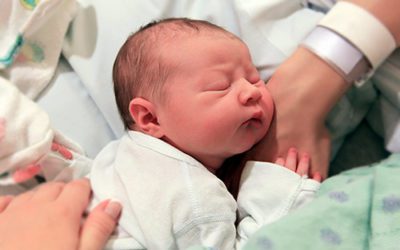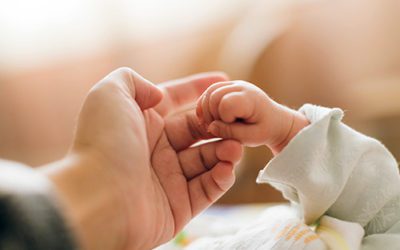
Your loved ones want to be helpful and supportive, but they aren’t always sure what to say or do. They may need you to help educate them about your adoption journey.
For example, Janna and Steve* had been waiting to adopt for a few months, when Steve’s mother took it upon herself to call the adoption agency to advocate for the couple to “get a baby by Christmas because they’d been waiting long enough.” Their coordinator shared with her that the birth mother chooses the family, not the agency – his mother had had no idea. Steve was mortified and worried that his mother’s interference may have somehow hurt their chances to be chosen, but we explained that his mother isn’t the first to call and likely won’t be the last. It’s just a lack of understanding of how adoption works today.
Now, your mother may not be the one to call, but you may notice a lack of knowledge about how adoption works today.
Recently, we pulled together some resources that may help you or those in your life both now and in the future. That’s right, as a parent, you have to prepare and plan for the future. If your mother (or other family members) don’t understand adoption today, they likely won’t understand in the future when you are maintaining an open adoption with your child’s birth mother or extended family. What may seem like an innocent comment may be hurtful or worrying to your child – so preparing now will help you be a better adoptive parent too!
1. Read and Learn
In On It: What Adoptive Parents Would Like You To Know About Adoption by Elizabeth O’Toole is an excellent book if you feel that your child’s grandparents-to-be (or other family members) need more preparation for life after adoption.
Adoption is a Family Affair: What Family and Friends Must Know by Patricia Irwin Johnston is another great book with similar information. Johnston is an infertility and adoption educator with vast experience counseling families and others in this area.
Both books will provide insight and guidance for both now and in the future. Understand that your friends and family may not be too keen on reading a book like this, especially if they feel they are ready to love your child just as they are. But reading it may help you see things from a different perspective and give you the words to correct their understanding gently.
2. Listen to or Share an Adoption Webinar
The Modern Adoption webinar is a great, free resource for anyone wanting to learn more (or have others learn more!) about how adoption works today.
Life as a New Adoptive Parent featuring Valerie Trumbower is information about a course she has developed to help first-time parents learn baby care basics. It may not help you with what to say to your mother, but it may equip you to feel more confident in caring for a baby!
Aaron & Kimberly’s Adoption Story is a sweet example of one couple’s journey through the entire process. Learning from anyone who has been where you are going is a valuable opportunity!
A Birth Mother Shares Her Adoption Story is an amazing opportunity to hear from Rebecca, a mother who chose adoption. This is an especially great resource to share when someone says, “How could any mother give up their baby!” You can hear straight from Rebecca herself – she is a caring, thoughtful, amazing woman who wanted to give her daughter more.
3. Have a Conversation
Sometimes people simply don’t know what they don’t know. So, rather than waiting until those awkward moments come up, have a conversation now with family members closest to you to educate them. This way, they are already on your adoption team when sticky questions come up around others. And, when those awkward questions do arise, be prepared to have frank, honest conversations about what you’ve learned in adoption.
Be aware that there are things you shouldn’t discuss. For instance, information about your child’s birth parents may be private. Talking about whether you are open to drug exposure or special needs may be best kept to yourself. Remember that everything your family learns about your child’s story may be something that could come up in the future.
For example, Dionne and Greg* adopted a little boy whose mother used heroin. He required a lengthy NICU stay as he weaned off the drugs. Although he had a bit of a slow start, he caught up quickly and was a normal, happy child. When he started to struggle with math in the third grade, Dionne’s mother made a hurtful comment that his challenges were probably because of the drug use in utero.
While that may or may not be true, it isn’t uncommon for a child to struggle in school, and there isn’t always a cause that can be pinpointed – sometimes kids just struggle with fractions, long division, or anything! And the comment was simply inappropriate.
Talking frankly now will help educate and prepare your family and friends for both your adoption journey and the future, so they can help and support you and your future child!
* Names have been changed for privacy
As Vice President of Lifetime Adoption, Heather Featherston holds an MBA and is passionate about working with those facing adoption, pregnancy, and parenting issues. Heather has conducted training for birth parent advocates, spoken to professional groups, and has appeared on television and radio to discuss the multiple aspects of adoption. She has provided one-on-one support to women and hopeful adoptive parents working through adoption decisions.
Since 2002, she has been helping pregnant women and others in crisis to learn more about adoption. Heather also trains and speaks nationwide to pregnancy clinics to effectively meet the needs of women who want to explore adoption for their child. Today, she continues to address the concerns women have about adoption and supports the needs of women who choose adoption for their child.
As a published author of the book Called to Adoption, Featherston loves to see God’s hand at work every day as she helps children and families come together through adoption.





0 Comments